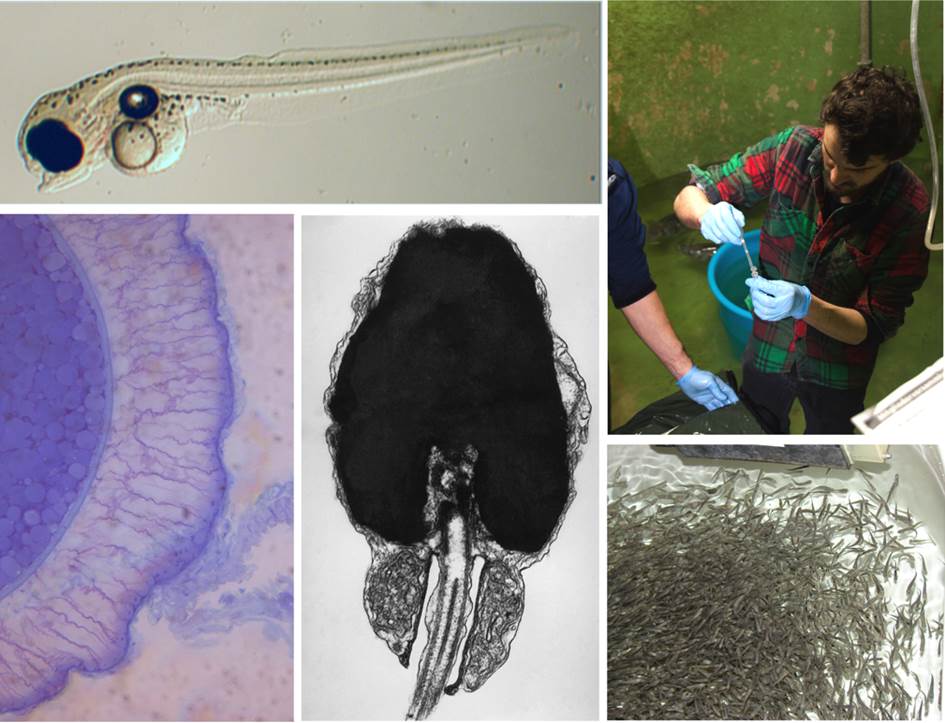Department of Organismic Biology
University of Salzburg
Contact
Prof. Franz Lahnsteiner
Franz.Lahnsteiner@sbg.ac.at
Phone: +43-662-8044-5630
Dipl. Ing. Florian A. Kunz
Florian.Kunz@aqua-research.at
Phone: +43-662-8044-5630
Address
Department of Organismic Biology
University of Salzburg
Hellbrunnerstraße 34
5020 Salzburg
Austria
The Department of Organismic Biology (former Institute of Zoology) of the University of Salzburg has a more than 30 year lasting tradition in the research on reproductive biology of fish. Presently the research on fish is organized in a research group termed Fish Reproduction and Aquaculture. This research group covers basic and applied aspects in morphological, physiological, and metabolic research on fish gonads and fish gametes, research in cryopreservation and in development of technologies for aquaculture. Teaching and supervision of master and PHD thesis works is done in the field of fish biology/ecology, reproduction, and in aquaculture. Information and knowledge transfer from science to Austrian fish farming industry is another important activity.
The basic research focuses on the morphology and the cellular and sub-cellular organization of the gonads, the efferent duct system, and the accessory glands in fresh water and marine fishes. Studies on the morphological organization, physiology and metabolism of fish gametes and on their interspecific differences are a research priority, too.
Cryopreservation of spermatozoa of fresh water fish species, in particular of the Salmonidae, Cyprinidae and Lotidae was intensively studied during the last decade. Presently, we work on the automation of these methods using high throughput systems.
In the field of aquaculture we cooperate with fresh water and marine fish farms. Our main cooperation partner is the Bundesamt für Wasserwirtschaft, Institut für Gewässerökologie, Fischereibiologie und Seenkunde in Scharfling (Austria) supporting us with practical experience in fish farming and offering a wide range of fish farming capacities for experimental purposes. Present research interests are the development of quality tests for spermatozoa and eggs, the improvement of methods for artificial fertilization and the development of microdiets for on-feeding of fish larvae.
